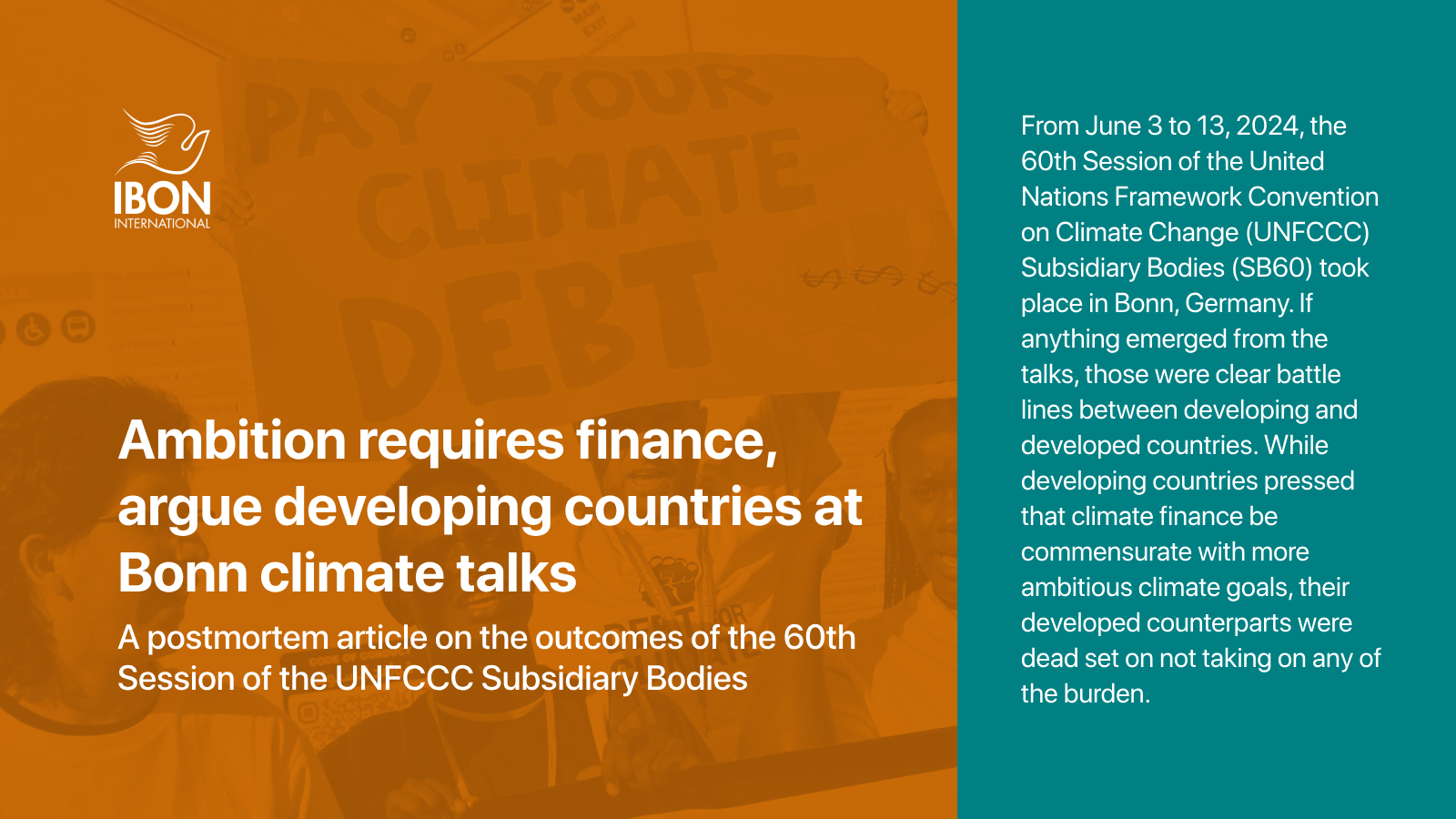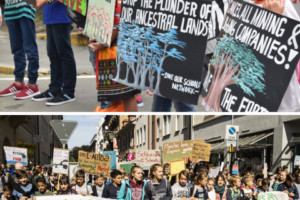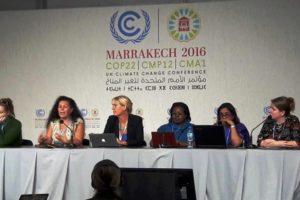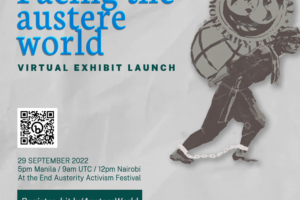A postmortem article on the outcomes of the 60th Session of the UNFCCC Subsidiary Bodies
From June 3 to 13, 2024, the 60th Session of the United Nations Framework Convention on Climate Change (UNFCCC) Subsidiary Bodies (SB60) took place in Bonn, Germany. If anything emerged from the talks, those were clear battle lines between developing and developed countries. While developing countries pressed that climate finance be commensurate with more ambitious climate goals, their developed counterparts were dead set on not taking on any of the burden.
SB60 served as preparatory talks for the 29th Conference of Parties (COP29) in Baku, Azerbaijan, this coming November. Dubbed the “Finance COP,” Parties are seeking to strike a deal at COP29 on a new climate finance goal to replace the (failed) USD 100 billion annual goal. For developing countries, this finance is key to enhancing their resilience, transitioning to renewable energy sources, and addressing climate-induced loss and damage.
By the end of the conference, civil society left Bonn disappointed. The Parties remained significantly divided on various agenda items when discussions inevitably alluded to finance and failed to set the stage for the upcoming climate talks in Baku.
New goal, same fights
Climate finance emerged as a key fight for activists and developing country negotiators this year, considering that Parties will have to agree on the New Collective Quantified Goal (NCQG) this November. In Bonn, the latest round of climate negotiations revealed an impasse in setting the goal’s target amount, the types of funds, the beneficiaries, and most especially, who pays.
Drawing upon the lessons from the previous USD 100 billion annual climate finance target, developing countries contend that there should be a significant increase for the new goal, proposing USD 1.1 to 1.3 trillion. They urged the delivery of grants over loans to guarantee that finance does not exacerbate their debt burdens. Developing countries also emphasised that climate finance has to be additional to existing funds to address persistent development concerns such as poverty and income inequality. Recent research by CARE International found that 93% of climate finance reported by developed countries between 2011 and 2020 was taken directly from their official development assistance (ODA) allocations, or aid, for which they already have a long-standing commitment to provide 0.7% of their gross national income.
In contrast, most developed countries avoided committing to specific figures, except for the US, which called for retaining the USD 100 billion goal as the baseline. They also proposed diversifying the sources of finance through private sector contributions and reforms of multilateral development banks, which raised apprehension from developing countries.
Another dividing line between Parties was on who should contribute to the goal. Developed countries suggested broadening the “donor base” to include emerging—yet developing—economies like China. However, developing countries insist that the historical responsibility of developed countries obligates them to lead in providing climate finance. They emphasised the principle of common but differentiated responsibilities and respective capabilities (CBDR-RC), a foundational principle that developed countries also rejected from being integrated into the new goal.
Relatedly, a battlefront is opening up around whether or not Article 2.1(c) of the PA should be integrated into the NCQG. The article mandates “making finance flows consistent with a pathway towards low greenhouse gas (GHG) emissions and climate-resilient development.” Developed countries are pushing for an understanding that all finance flows that result from actions derived from Article 2.1(c) are contributions towards the NCQG. Developing countries maintain that the NCQG is separate and relates only to flows provided from developed to developing countries. Integrating the said article into the new goal would impose steeper emission reductions on developing countries and dilute developed countries’ climate finance obligations.
In the end, Parties at SB60 were unable to come to a conclusion, leaving most of the decision-making to high-level dialogues and negotiations expected to happen in the lead-up to and during COP29.
Stop the credits!
SB60 saw slow progress on Article 6 of the PA about international carbon markets that are highly contested by civil society. The article features bilateral trading of credits under Article 6.2 and a centralised international carbon market under Article 6.4. CSOs point out that the transactional nature of these mechanisms essentially absolves developed countries of historical responsibility for emissions from current mitigation mechanisms. The matter took up most of the spotlight during the second week of the Bonn talks, yet texts were forwarded to Baku without substantial resolutions.
Negotiators were divided over the authorisation of emission reductions for transfer. Some argued for stricter oversight through authorisation of each emission reduction activity, while others preferred a consolidated approach. Disagreements also arose over the revocation of authorisation at any point, which AOSIS, EIG, and New Zealand opposed due to market confidence concerns. Other developing country blocs insisted that authorisation should be a national prerogative.
There is also growing concern over countries shrouding their emission trades in secrecy. Negotiators sought greater transparency by defining when information could be private and requiring reports on unjustified confidentiality. A code of conduct for reviewing confidential information is expected to be developed by the UNFCCC secretariat. Likewise, an electronic format for reporting was discussed for adoption in the future.
Another issue that faced a deadlock among countries was the possible inclusion of “emissions avoidance” in the texts and whether they can be used to generate tradable credits. Emissions avoidance is defined as the prevention of GHG emissions expected to be generated. Developing countries caution that the lack of an international standard for quantifying and verifying so-called avoided emissions could divert attention from genuine emission reductions.
While purported to reduce emissions and deliver finance to developing countries, these mechanisms reflect a narrow vision of ‘net-zero’ and coerce developing countries into sacrificing their resources to access finance. Furthermore, market-based mechanisms adversely impact biodiversity and indigenous and human rights.
There is a notable shift among activists and policymakers towards enhancing the clarity of Article 6.8, which involves non-market approaches (NMAs). During in-session workshops at SB60, several countries proposed mechanisms such as carbon pricing and nature-based solutions within NMAs that some fear are just iterations of market-based approaches. On the other hand, civil society groups such as IBON International are building frameworks for NMAs that centre on solutions developed by grassroots communities.
Amid lack of consensus, Parties agreed to advance work on Articles 6.2 and 6.4 through the second dialogue, as well as workshops on Article 6.8 before COP29. The Azerbaijan presidency also made it clear that it would make it a priority for COP29 to resolve the issues surrounding Article 6.
Diverging visions on transition
Dialogues on the Just Transition Work Programme (JTWP) happened ahead of the Bonn meetings. Like in last year’s SB58, developed countries at SB60 attempted to dilute the JTWP process into a talk shop, focused solely on countries’ best practices regarding transitioning energy and the workforce. This runs counter to what developing countries envision for the work programme–with clear outcomes that extend beyond mitigation and labour.
The first dialogue sought to integrate just transitions into climate plans under the Paris Agreement, termed Nationally Determined Contributions (NDCs), as well as into adaptation plans and long-term strategies. Parties were generally in consensus on the need to tailor the transition to local contexts and ensure alignment with the PA.
Despite areas of agreement, contentions arose when the G77+China proposed a work plan. Developing countries felt that the initial text from the dialogue lacked operative language, prompting the proposal to improve linkages of the dialogue and the negotiation process. G77+China further emphasised the necessity of the work plan to systematically implement the work programme until its review by 2026.
Developed countries blocked the proposal citing that the work programme is at its “infancy stage” and that the work plan is “a premature anticipation of the outcome of the JTWP’s review in 2026”. This could be interpreted as developed countries’ reluctance to commit to an actionable plan, possibly to avoid binding obligations that may arise from such commitments.
Negotiations also resurfaced Parties’ differing views on the scope of just transition. Developing countries pointed out that a just transition includes adaptation efforts, sustainable development, and poverty eradication. They stressed the importance of financial, technological, and capacity-building support from developed countries in line with the CBDR-RC principle to transition based on their development contexts and priorities.
On the last day of SB60, the draft conclusion and informal note were published. The work plan was noticeably absent from the conclusions, while the informal note included a “placeholder on the work plan for the work programme” within square brackets, indicating unresolved issues.
Stocktake to stalemate
After the first Global Stocktake (GST) process of the PA at COP28, Parties reached an unprecedented commitment to “transition away from fossil fuels”. This momentum was carried forward at SB60, where discussions began on the modalities of the UAE Dialogue tasked with implementing the GST outcomes. However, a key sticking point remains: the scope of the dialogue. Parties are divided on whether it should only tackle financial outcomes of the GST or encompass all the outcomes.
Several developing countries pushed for stronger emphasis on climate finance in the dialogue. They cited Paragraph 97 of the GST outcomes, which places the establishment of the UAE dialogue under the finance section. This placement supports their position that emission reductions in their countries require significant financial support. On the contrary, developed countries such as the EU pushed for discussions to encompass all aspects of the GST, with an emphasis on emission reductions.
These discussions took place in the context of the approaching deadline for countries to submit new NDCs. The next round is expected to be more comprehensive than previous pledges, promising to bring the world closer to the Paris Agreement target of “well below 2 degrees Celsius, while pursuing efforts to limit the increase to 1.5 degree Celsius”. However, this would ultimately circle back to developing countries’ assertion that implementing their plans in line with PA goals would require the delivery of finance from developed countries.
Finally, Parties in Bonn settled on an informal note prepared by the co-facilitators, but acknowledged that the note did not represent consensus. This decision leaves the matter open for further discussion at COP29.
Can’t spell Baku without B.A.U.
SB60 painted an ominous picture of what COP29 may look like. During the opening plenary, climate activists Tasneem Essop and Anabella Rosemberg were de-badged for peacefully protesting “No B.A.U. (business as usual) during a genocide” and raising the Palestinian flag. Various constituencies urged the reinstatement of the activists and called out the Parties’ deafening silence on the genocide and climate apartheid happening in Palestine.
This follows a pattern of crackdowns against peaceful organising and campaigning across the world, including in the COP29 host country, Azerbaijan. Rights violations such as restrictions on freedoms of expression, assembly, and association remain rampant in the country. These precedents foretell that civil society may face stringent conditions at COP29.
Many also fear a repeat of COP28 in Dubai, with Azerbaijan’s appointment as COP29 President of a state oil company veteran, Mukhtar Babayev. COP28 was widely condemned as an exercise in corporate greenwashing, considering the record number of over 2,400 fossil fuel lobbyists present—an issue that could recur in Baku.
Social movements and peoples’ organisations are well aware yet unfazed by the possible hurdles, vowing to hold governments to account for their promises and to ensure that there will be no backsliding on key principles of international cooperation, especially those enshrined in the Convention. They issue a resounding call for a just and equitable post-2025 climate finance goal with new, additional, predictable, and grant-based finance that ensures direct access for grassroots communities to help address long-standing climate and development injustices. #




![[WEBINAR] Global Economic Shocks: What’s Happening? Focus on Food, Fuel and Debt](https://iboninternational.org/wp-content/uploads/2022/06/ILPS-COMM-2-Poster-300x200.jpeg)